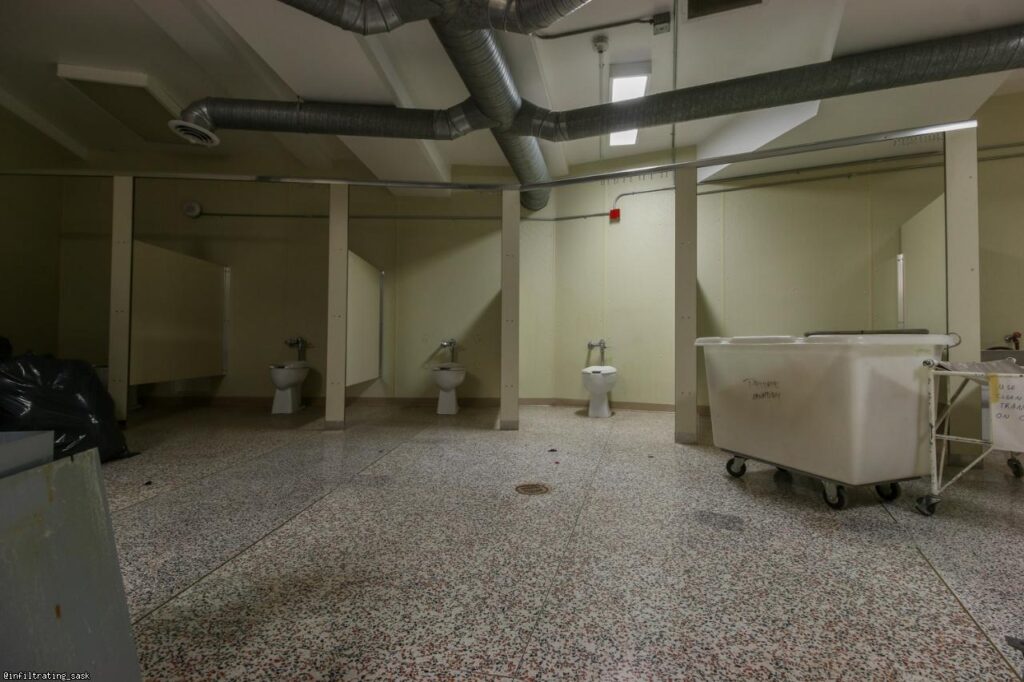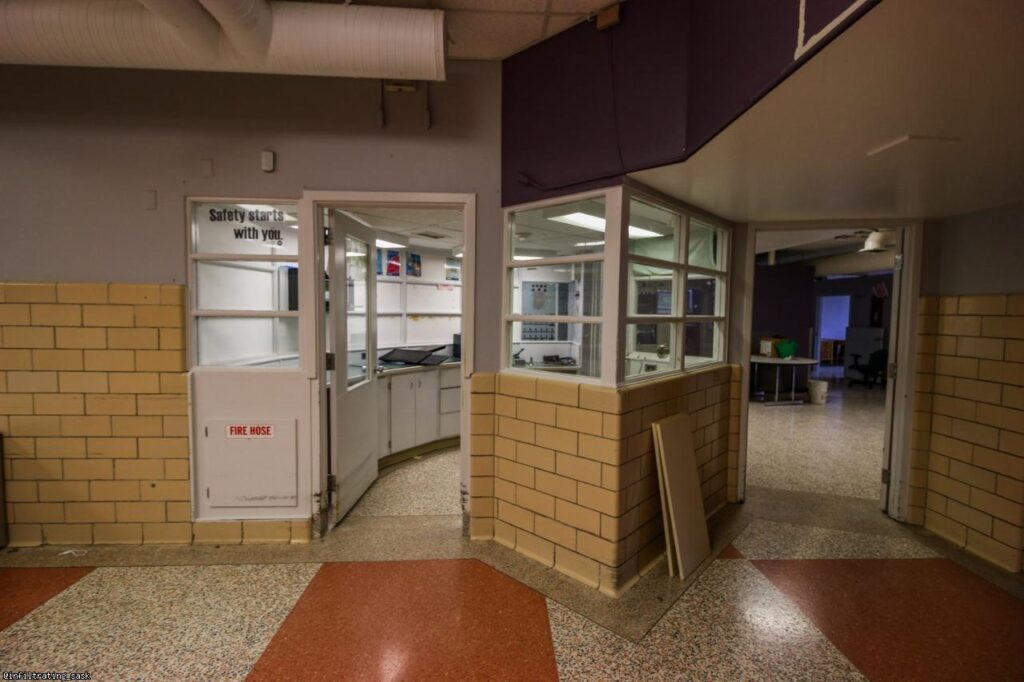Saskatchewan Training School: “You cannot just walk away”
In memoriam of all those buried on the grounds of the Saskatchewan Training Centre
Episode description
The Saskatchewan Training School in Moose Jaw operated for nearly 70 years, isolated on the bald prairie. This episode documents disabled resistance, and powerful refusals of any further abuse.
There is urgency and creativity required to move beyond institutionalization, and towards a system that actually supports the needs and capacities of disabled people
This episode includes footage from the Freedom Tour documentary. Featuring stories, and testimonies by Dr. Erika Dyck, Gloria Mahussier, with additional reporting by Alex Birrell.




Show Notes
“The best thing about leaving there is I get to go places where I want to go now.
You know what I mean? It wasn’t scary to come out. I was in there 42 years. Most of the people I met when I moved out, I knew them already. I think we all think the same way about getting out of there. Alls I can say is that’s why I’m staying in People First because I want to see it happen, everyone moves out.” – Bill Hogarth, 2006
This episode included the testimonies, expertise and knowledge of several community organizers including:
- Bill Hogarth : Saskatchewan deinstitutionalization advocate and survivor of the Valley View Centre. One of the Co-Chairs of the Deinstitutionalization Coalition of Saskatchewan, and proud member of the Freedom Tour.
- Jerry Wise: Saskatchewan deinstitutionalization advocate and survivor of the Valley View Centre. “The last day when I moved, I saw it and I was glad to get outta there. The infirmary, it was more like a hospital but it’s for people who can’t get around and look after theirselves. A lot of them died. Then they went in the morgue. I went there once. It’s a terrible thing to see people suffering in there and can’t get out. Even those that can’t look after theirself, they should have their own place to live in.” (2006).
- Neil Mercer: Saskatchewan deinstitutionalization advocate and survivor of the Valley View Centre. “It doesn’t matter how much you pretty the place up, how many times you paint the tunnels or even get rid of the tunnels, or put some nice pictures on the wall, it’s still an institution. It’s not a home and people should just admit it.” (2006).
- Erika Dyck: he is a professor of history and Canada Research Chair in the History of Medicine at the University of Saskatchewan. In 2014, Dyck was inducted to the New College of Scholars, Artists and Scientists at the Royal Society of Canada. She writes about visiting Saskatchewan institutional cemeteries here.
You can read more stories of resistance and escape in this incredible 2006 story compilation written by survivors with the support of the Saskatchewan Association for Community Living.
To learn more about the history of settler colonialism, residential schools, and the history of mass graves in Saskatchewan please check out these resources:
Stolen: Surviving St. Michael’s a peabody award winning series by Connie Walker documenting the abuses at the St. Michaels residential school, and creating a historical records of abusive priests and nuns within the institution.
United 4 Survivors, is a project working with survivors to address the Île-à-la-Crosse Residential School Injustice, which was exempt from earlier residential school settlements.
The Office of the Special Interlocutor (OSI) is working with Indigenous Peoples, organizations and communities, as well as representatives of the Government of Canada, to identify the gaps in the current legal framework. Recommendations for a new federal framework will be made to ensure that the bodies and Spirits of the children are treated with honour, respect and dignity.
The Final Report from the Office the Special Interlocutor Sites of Truth Sites of Conscience Unmarked Burials and Mass Graves of Missing and Disappeared Indigenous Children in Canada, which found: “Requests made pursuant to Article 12 to add Institutions to the Settlement Agreement” found on the official court website for the settlement of the Residential Schools Class Action Litigation reveals that Indigenous children were taken to many provincial reformatories. By way of example, requests were made to add the following reformatories, along with many more: Saskatchewan Training School, Alberta Institute for Girls; among others.
Episode Credits
Invisible Institutions is created by me, Megan Linton. This episode was co written by Alex Birrell. Audio recording by Eric Wickham, Mae Slack and me/Megan Linton. Voice acting is by Nicole Flynn, and our theme music is by Bára Hladík.
This episode’s sound design, editing, and music are by Helena Krobath. Thanks to audio intern Hendrix Krobath-Rempel.
Invisible Institutions is supported by Inclusion Canada and People First of Canada’s Joint Task Force on Institutionalization.
Special thanks to Alex Birrell, Gloria Mahussier, and David Weremy for speaking with me and to Neil Mercer and everyone involved in the Freedom Tour. That footage is shared with permission.
If you enjoyed this episode, you can learn more about the Freedom Tour documentary and find all the episodes from Season 1 on our website, invisibleinstitutions.com.
And of course, we are esteemed member of the Harbinger Media Network. If you enjoyed this show, check out Unmaking Saskatchewan by Alex Birrell.
Tracks

Bara Hladik: Invisible Institutions Theme Song
Zlata: Cosmosis – Atmosphere
Zlata: Cosmosis – Mitochondria
Zlata: Cosmosis – Hermit
Zlata: Cosmosis – Circulation
Zlata: Cosmosis – Erudition
From the Freedom Tour: We Gotta Close the Institution
Additional music by Helena Krobath
